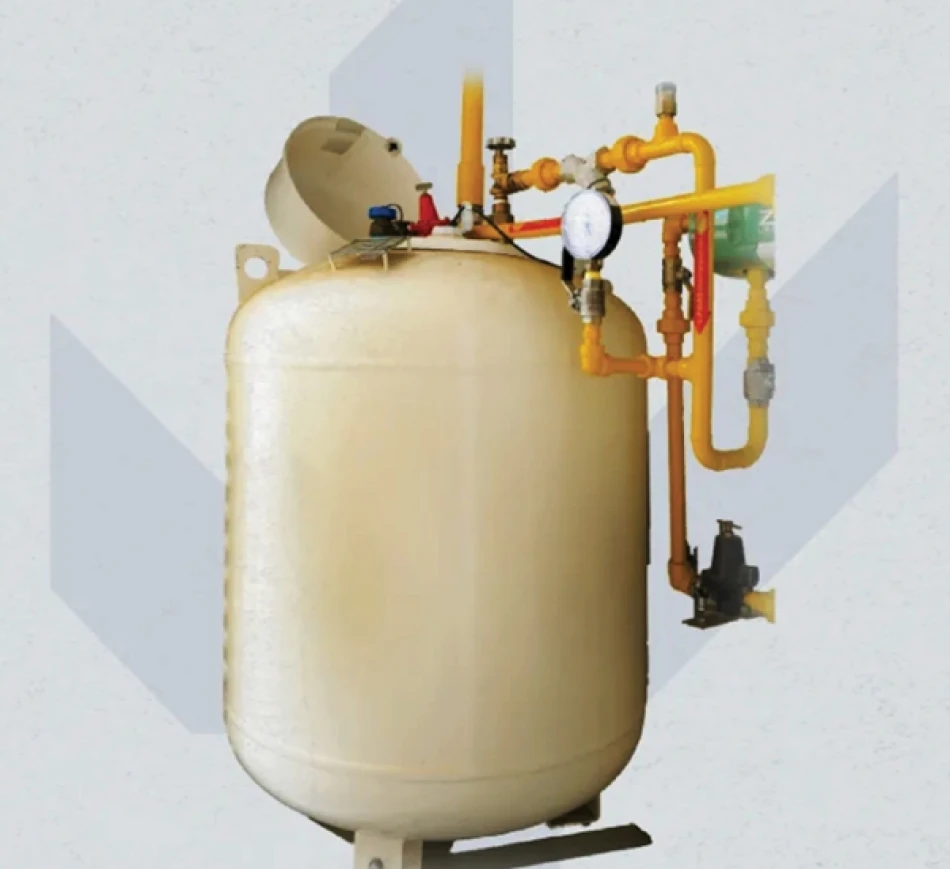
Abu Dhabi Utility Deploys First Vertical LPG Storage System for Food Facilities
Abu Dhabi Rolls Out Revolutionary Vertical LPG Tank System to Transform Food Industry Safety
Abu Dhabi's Department of Energy has launched the emirate's first vertical liquefied petroleum gas (LPG) tank system specifically designed for food establishments, marking a significant shift away from traditional gas cylinder operations. The innovation promises to reduce workplace accidents while streamlining operations for restaurants and food facilities across the region.
Technical Innovation Addresses Long-Standing Safety Concerns
The new system replaces conventional gas cylinders with vertical tanks capable of holding up to 125 gallons, equipped with gas vaporizers that meet international safety standards. Unlike traditional setups, these tanks are filled directly on-site by licensed operators, eliminating the need for cylinder storage and manual handling—two major sources of workplace injuries and gas leaks.
This approach represents a fundamental rethinking of commercial gas supply chains. By removing the human element from cylinder transport and storage, the system addresses what industry experts have long identified as the weakest links in LPG safety protocols.
Strategic Focus on Underserved Areas
The Department of Energy is particularly targeting food establishments in areas lacking underground gas networks or centralized gas systems. This strategic focus makes economic sense—these locations often rely heavily on cylinder deliveries, creating logistical challenges and safety vulnerabilities that the new system directly addresses.
For restaurant operators in Abu Dhabi's expanding suburban and industrial zones, this could represent a significant operational upgrade, potentially reducing both insurance costs and regulatory compliance burdens.
Regulatory Framework Sets International Benchmark
The department has issued Technical Bulletin No. 1/2025, establishing comprehensive requirements that align with both the National Fire Protection Association (NFPA) standards and the UAE's Fire Safety and Life Protection Code. This dual compliance framework positions Abu Dhabi's system as potentially exportable to other markets seeking similar safety improvements.
Dr. Saif Said Al Qubaysi, Acting Director General of Regulatory Affairs, emphasized that gas represents a critical component in food service supply chains, making safety improvements essential for broader sustainability goals. The regulatory approach suggests Abu Dhabi is positioning itself as a regional leader in industrial safety innovation.
Market Implications and Competitive Positioning
The initiative reflects Abu Dhabi's broader strategy to differentiate its business environment through infrastructure innovation. Similar to how Dubai transformed logistics and Singapore revolutionized port operations, Abu Dhabi appears to be targeting industrial safety as a competitive advantage for attracting food service investments.
For businesses, the long-term cost implications could be substantial. While initial installation costs may be higher, reduced insurance premiums, lower accident-related downtime, and streamlined operations could generate significant savings over time.
Implementation Through Private Sector Partnership
The Department of Energy is working with licensed private sector operators to implement and maintain the system, following a model that has proven successful in other UAE infrastructure projects. This public-private approach should accelerate deployment while ensuring commercial viability.
Ahmed Al Sheibani, Executive Director of Petroleum Materials Regulatory Affairs, indicated that the system aims to build confidence among food service operators while aligning with international best practices—a clear signal that Abu Dhabi is benchmarking against global standards rather than regional ones.
The timing of this launch, coinciding with Abu Dhabi's continued economic diversification efforts, suggests authorities view improved industrial safety infrastructure as essential for attracting higher-value food service and hospitality investments. For the broader Gulf region, this could establish a new template for modernizing industrial gas supply systems.
Most Viewed News

 Layla Al Mansoori
Layla Al Mansoori






